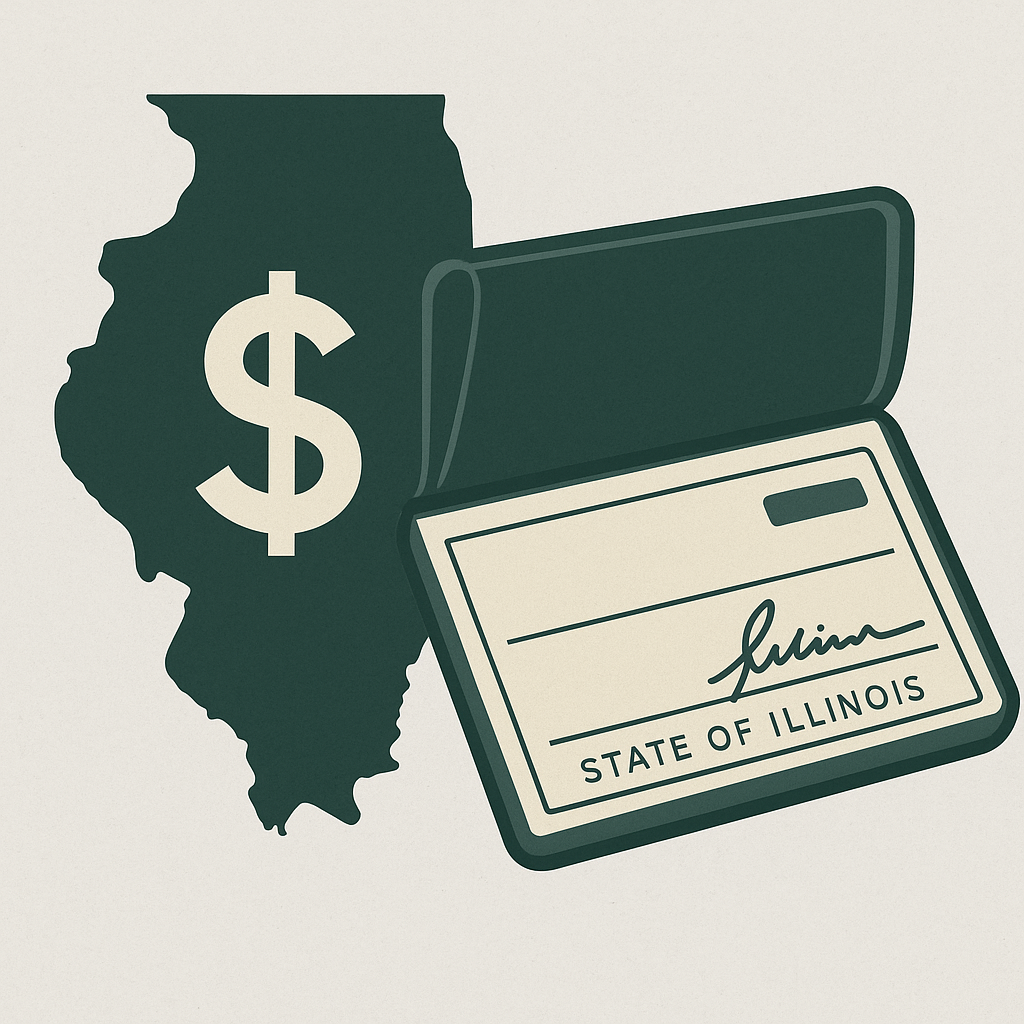Balancing Illinois’ Checkbook:
What’s at Stake in the 2026 Comptroller Election
FREEPORT, IL – October 2, 2025
Why This Office Matters, What It Does, and Who’s Running to Replace Susana Mendoza
As Illinois voters prepare for another busy election year in 2026, one statewide race that often flies under the radar is for Illinois Comptroller. It may not be as high-profile as Governor or Attorney General, but the Comptroller’s office plays one of the most critical roles in state government — managing Illinois’ checkbook.
What Exactly Is the Comptroller?
The Illinois Comptroller is the state’s chief fiscal control officer, responsible for paying the state’s bills and keeping track of its finances. The office ensures that state employees, schools, vendors, hospitals, and social service providers get paid — and that taxpayers can see how their money is being spent.
In simpler terms, if the Governor and Legislature decide how to spend, the Comptroller decides when and to whom those payments are made. It’s a job that demands fiscal discipline, transparency, and fairness — especially in a state that has wrestled with debt, credit downgrades, and budget impasses over the years.
The Comptroller also maintains transparency portals, financial reports, and debt disclosures to keep the public informed. When payments are delayed or priorities shift, the ripple effects can hit everyday families, schools, and small businesses across Illinois.
Susana Mendoza’s Tenure: A Record of Reform and Transparency
Susana A. Mendoza has served as Illinois Comptroller since 2016, after first winning a special election to fill the late Judy Baar Topinka’s unexpired term. She won reelection in both 2018 and 2022, becoming one of the state’s longest-serving fiscal officers.
During her tenure, Mendoza helped pull Illinois back from the brink of fiscal crisis:
Paying Down the Bill Backlog: When she took office, Illinois owed nearly $16 billion in unpaid bills. Today, that backlog has been virtually eliminated.
Improving Credit Ratings: Her work has contributed to nine credit rating upgrades from major agencies — a sign of restored confidence in the state’s finances.
Building Reserves: Under her leadership, the state’s Rainy Day Fund climbed from nearly zero to over $2 billion.
Transparency Reforms: She pushed for and passed major accountability laws, including the Debt Transparency Act and Truth in Hiring Act, giving taxpayers a clearer picture of where their dollars go.
Timely Payments to the Vulnerable: Mendoza prioritized payments to schools, nursing homes, and social service agencies even during budget gridlock.
She also launched online transparency portals showing how Illinois spends federal COVID relief funds and other special programs, helping citizens follow the money in real time.
After nearly a decade in office, Mendoza announced in July 2025 that she will not seek reelection in 2026, saying she’s ready for her “next big challenge.” Her decision opens one of the few competitive statewide races in Illinois.
The 2026 Race: A Crowded Democratic Field
With Mendoza stepping aside, the March 17, 2026 Democratic primary is shaping up to be a wide-open contest.
As of early fall 2025, several Democratic leaders have announced or are expected to run:
Margaret Croke – State Representative from Chicago’s 12th District, backed by the Cook County Democratic Party.
George Danos – Champaign County Auditor.
Rickey Hendon – Former State Senator.
Stephanie Kifowit – State Representative from Aurora’s 84th District.
Holly Kim – Lake County Treasurer.
Karina Villa – State Senator from the 25th District.
Illinois has leaned blue in recent statewide races, meaning the Democratic primary could effectively decide the next Comptroller.
On the Republican side, no major candidates have formally declared yet. Party leaders have indicated they’re still recruiting contenders for several statewide offices. As filing deadlines approach in late October, more names are expected to surface.
Why This Election Matters
Although it rarely dominates headlines, the Comptroller’s office touches nearly every corner of Illinois life:
Fiscal Responsibility: The Comptroller’s discipline in managing bills and debt affects credit ratings, interest rates, and long-term state stability.
Local Impact: Cities, schools, and small businesses across Northwestern Illinois rely on timely state payments. Delays can disrupt budgets, payrolls, and community programs.
Transparency and Trust: With billions flowing through state accounts, the next Comptroller will need to maintain — or improve — the transparency tools and public reporting Mendoza established.
Checks and Balances: The Comptroller acts independently from the Governor, providing a vital layer of accountability over state spending.
For voters in places like Freeport and Stephenson County, this race is about more than Springfield politics. It’s about ensuring the state pays its bills on time, funds local programs, and remains fiscally stable for years to come.
Key Dates
Candidate Filing: October 27 – November 3, 2025
Primary Election: March 17, 2026
General Election: November 3, 2026
The Bottom Line
The Illinois Comptroller’s office may not be flashy, but it’s one of the most important positions in government — responsible for balancing the checkbook of a $50 billion state. With Susana Mendoza’s departure, voters have a chance to decide who they trust most to keep Illinois’ finances transparent, responsible, and on track.
Before casting your ballot, take time to learn about the candidates and their vision for accountability, transparency, and fiscal strength. Because when it comes to the state’s checkbook, every Illinoisan has skin in the game.







